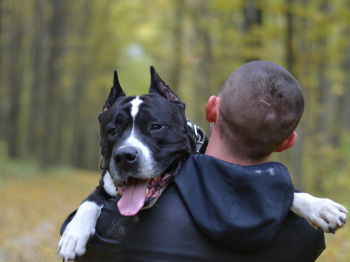The Comparative Oncology Program (COP) designs and implements clinical trials in collaboration with academic veterinary institutions across the United States. Pet animals will receive treatment under the care of board-certified veterinary oncologists who share our goal of alleviating the suffering of companion animals with cancer. Information gained by the clinical trials will be used to benefit both animals and humans with cancer.
COTC027: Preclinical comparison of two hypomethylating nucleosides in tumor-bearing dogs
This clinical trial led by the National Cancer Institute (NCI) assesses the safety and effectiveness of TdCyd and Aza-TdC, novel anticancer agents, when given to dogs with cancer. Studies in dogs with cancer will complement currently open human trials designed to test new doses and effects of this agent.
COTC029: Pilot assessment of BG34-200 in spontaneous canine cancers
The purpose of this study is to evaluate dose escalation of BG34-200 in dogs with cancer. We will 1) evaluate the safety of BG34-200, and 2) evaluate the ability of BG34-200 to stimulate a patient’s immune system to detect and destroy cancer cells.
COTC031a/b/c: Safety evaluation of three anti-canine CTLA-4 monoclonal antibodies in tumor-bearing dogs
The purpose of this study is to evaluate three types of a cancer treatment called a monoclonal antibody. The goal is to choose one of these three treatments that is safe in dogs and is shown to be able to improve the immune system’s response to cancer.
COTC033: Repurposing vaccine immunity to treat cancers: validation in canine patients
This clinical trial, led by the National Cancer Institute (NCI), in collaboration with Dr. John T. Schiller, assesses the safety and effectiveness of intra-tumoral administered vaccines, when given to dogs with cancer. Studies in dogs with cancer will inform human trial designs to test new doses and effects of this agent. Read more about this exciting therapy in the CCR Milestones magazine.
COTC034: Clinical, molecular, and immune characterization of naturally occurring osteosarcoma in dogs
This trial is a single-armed trial where all dogs enrolled will receive treatment with amputation. The trial will evaluate the natural spectrum of outcomes for dogs treated with surgery alone for appendicular osteosarcoma.
Additional Clinical Trials
See the list below for additional information about veterinary clinical studies throughout North America.




